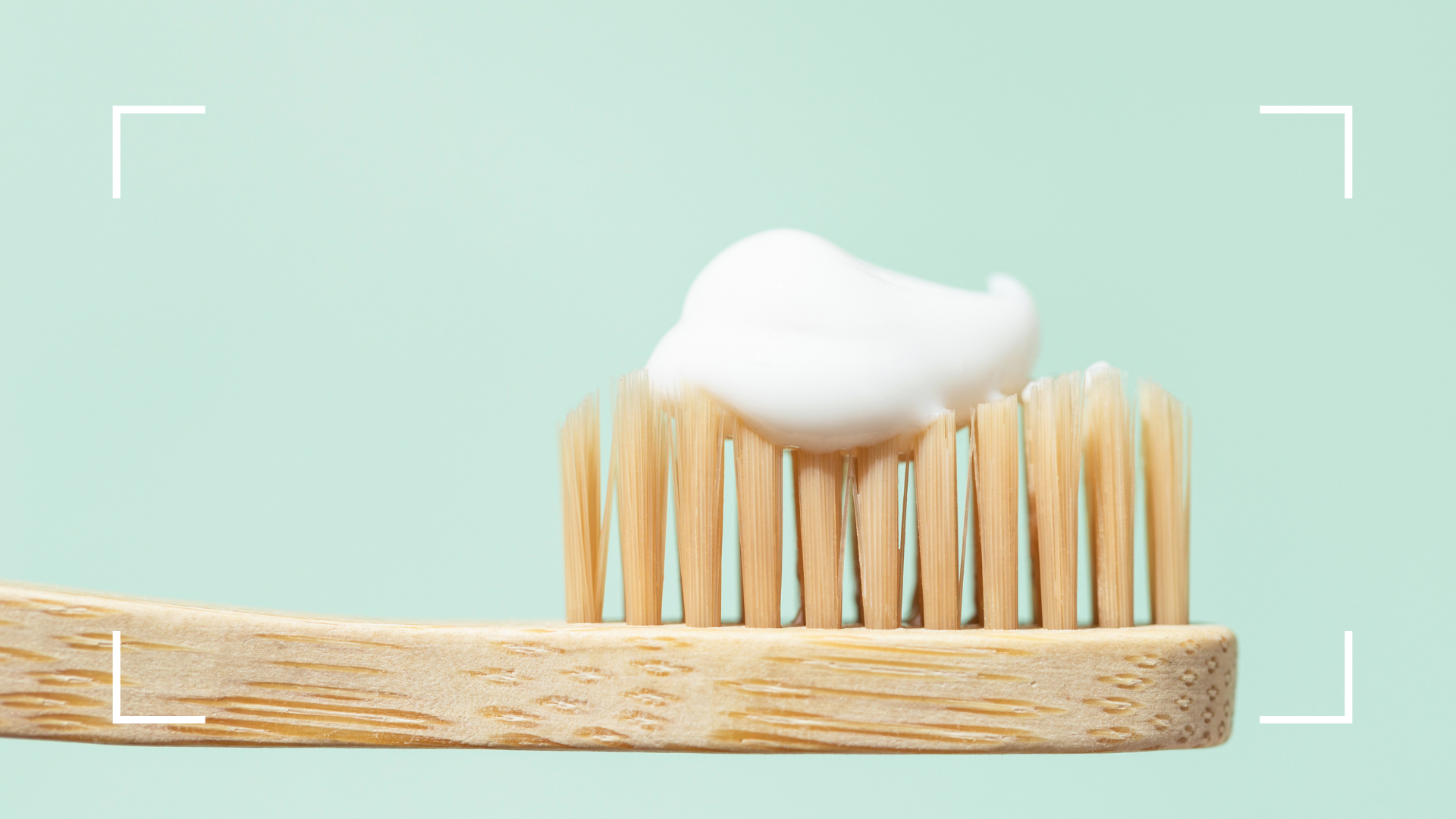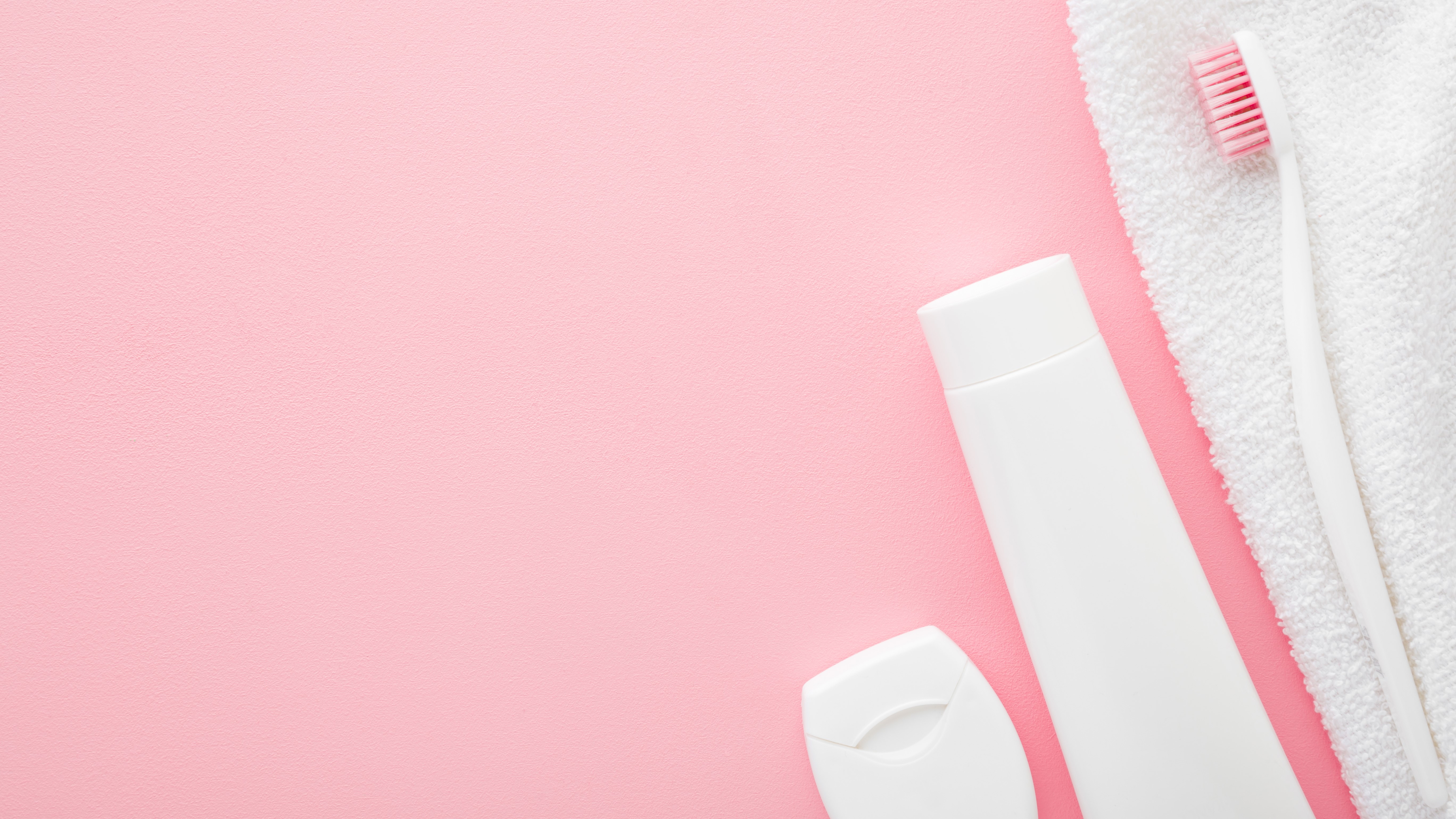Is your bad breath halitosis? How to recognize it and treat it yourself
We outline the causes, diagnosis, and treatment of halitosis—plus the signs your bad breath is a symptom of something serious


Everybody experiences bad breath once in a while. It can be unpleasant—and even a little embarrassing in the company of minty-fresh friends—but it eventually disappears. Unless you have halitosis.
There are many factors that can cause halitosis, from poor oral hygiene (see our guide to the best electric toothbrushes if you're ready to upgrade your dental care), to illness and Gastrointestinal trouble. Nailing down the cause of your halitosis is key to finding a solution that works for you.
With the help of dental hygiene experts, we share the main culprits for occasional and chronic bad breath and advice on how to get rid of halitosis once and for all.
What causes bad breath?
1. Something you just ate or drank
“Eating a tuna sandwich or too many garlic knots for lunch may cause bad breath but it's only temporary, and the foul smell will dissipate as the smell-emitting foods are processed by our bodies,” says Dr Mariya Malin, DDS of Wilton Smiles.
Garlic, onions, and spicy foods can leave a lingering smell in your mouth, and drinking alcohol can have a similar impact. But these types of odors usually disappear after you’ve digested your aromatic meal—or recovered from your hangover.
2. A temporary infection
“With an acute infection, such as tonsillitis, the breath can have an offensive smell for several days, but it will go away after the infection has cleared,” according to Dr David Beatty, a general practitioner with more than 30 years experience.
A short-term sinus infection can also make your breath stink. But, as we’ll see, chronic sinus problems and certain diseases can also leave you with consistently bad breath.
Sign up to our free daily email for the latest royal and entertainment news, interesting opinion, expert advice on styling and beauty trends, and no-nonsense guides to the health and wellness questions you want answered.
Bad breath vs halitosis
It's perfectly normal to have bad breath occasionally, especially just after eating. Bad breath only becomes halitosis when it doesn't dissipate. Chronic bad breath, or halitosis, can stick with you for weeks or months on end.
Causes of halitosis (and how to treat it)

1. Poor oral hygiene
“Poor oral hygiene is the most common cause of halitosis,” says Dr Beatty. This probably comes as no surprise. After all, when you don’t clean your mouth and teeth, “Food debris gathers and bacterial plaques affect the teeth and tongue. The microbes in the mouth break down the food debris with the release of chemicals such as sulfur compounds, diamines, and short-chain fatty acids—these cause the smell. Infection in the gums and around the teeth can aggravate the problem.”
How to treat it: “Brush at least twice a day and floss at least once a day, and thoroughly clean any dental appliances like a retainer or denture as directed by your dentist,” suggests prosthodontist Dr Paul Springs of Timeless Dentistry. Unless you want all those odor-causing bacteria and microbes stuck in your system, get into a good routine and start using more effective tools.
2. Failing to brush your tongue
You might treat your teeth to the best whitening toothpaste money can buy, but if you’re not also giving your tongue the cleaning attention it deserves, you could end up with chronic bad breath.
“Brushing your tongue is as important, as it's a large area of the mouth that harbors bacteria. Up to 50% of the bacteria [in your mouth] can live there,” explains Dr Malin. If your toothbrush isn’t cutting it, she advises using a tongue scraper which can be a lot more convenient and give better results than a brush.
How to treat it: Brush your tongue as part of your usual brushing routine or invest in a tongue scraper and scrape your tongue every day. Always follow directions that come with the product.
3. Chronic dehydration
Dehydration is known to cause a lot of problems, from dry skin to dizziness. But it may also contribute to halitosis. After all, your system doesn’t have the water it needs to function at its best, making you more vulnerable to bacterial growth and other issues that make your breath smell.
“Drinking alcohol the night before can dry out your mouth sufficiently, allowing bacteria to grow unchecked overnight and produce bad breath in the morning,” says Dr Malin. And that’s after just one night without enough water. Now, think about how that cause-and-effect is magnified if you’re chronically dehydrated. Pretty gross, right?
How to treat it: Drink more water every day throughout the day (aim for six to eight glasses), add ice to your alcoholic beverages or drink a glass of water alongside your tipple.
4. Dry mouth

Insufficient saliva production can leave you with a dry mouth as well as foul breath. "Saliva has antimicrobial agents that kill bacteria. Anything that interferes with saliva production will cause bad breath," Dr Malin explains. That includes dehydration of course, but certain prescription and over-the-counter medications also interfere with your body’s ability to produce saliva.
How to treat it: Dr Malin advises staying hydrated and chewing sugarless gum after meals to stimulate saliva production. If that’s not enough, look for a special oral rinse.
You could also put your saliva to the test—quite literally. “A simple, easy and painless salivary test, like the Oral Genome salivary test, can help determine your saliva's response to fighting cavities, gum disease, and bad breath,” says the company’s founder, Dr Tina Saw, DDS. “Your saliva's acidity, bacteria level, and the byproducts it produces can help determine your risks for halitosis. Understanding and knowing personalized information about your dental health can help you prevent bad breath in the long run.”
5. Low-carb or low-calorie dieting
Even if you’re putting less food in your mouth, that extreme diet fad you’re trying could actually be making your breath worse than a big bowl of garlicky pasta.
“In the absence of carbs, our body burns fat and produces smelly compounds called ketones which cause bad breath,” Dr Malin explains. And according to Dr Beatty, “Inadequate calorie intake during starvation or extreme dieting can cause a ketotic smell” as well.
How to treat it: Switch to a more balanced diet if you’re sick of popping sugar-free breath mints. Make sure your diet is packed with nutrients as nutrient deficiencies can also have unfavorable effects on our bodies, in particular hydration levels, which can result in symptoms like bad breath.
6. Chronic sinus problems
We mentioned that acute infections can give you occasional bad breath. But, as Dr Beatty says, “Chronic infection in the sinuses can cause a persistent drip of pus from the back of the nose into the mouth.” Also known as post-nasal drip, this pesky condition can make your breath reek.
How to treat it: Depending on how severe your condition is, there are a few different treatment options. “Nasal douching, steam inhalations, nasal sprays, antibiotics, and surgery may all have a place in the management,” Dr Beatty tells us.
If you think you may have a chronic sinus infection, speak to your doctor for medical advice.
7. Gastrointestinal trouble
Acid reflux is one of the most common culprits behind halitosis. When the stuff sitting in your stomach gets sent back up toward your esophagus or mouth, smelly breath is unavoidable.
How to treat it: "Simple measures such as weight loss or antacids may help," says Dr Beatty. "But, more potent drugs like ranitidine or lansoprazole may be needed.”
If you're suffering from Gastrointestinal issues, know that help is available and it's not something to be ashamed of. Get in touch with your doctor to discuss your symptoms to find the right treatment for you.
8. Diseases
“A small percentage of chronic bad breath can be attributed to respiratory infections, gastrointestinal diseases, advanced liver or kidney disease, and diabetes,” Dr Malin tells us, “However, most cases are linked to the bacteria growth within the mouth.”
How to treat it: “Vincent's disease is a mouth disease that causes gum inflammation and ulcers in the mouth that can be treated with antibiotics,” says Dr Beatty. “Oral ulcerations can be recurrent but chlorhexidine mouth rinses can reduce the frequency and severity. Cancer in the oral cavity can cause bad breath, too. Any ulcer in the mouth lasting over three weeks should be biopsied.”
In addition to diseases of the mouth, he says certain lung conditions can contribute to bad breath. “Bronchiectasis, chronic obstructive pulmonary disease, lung abscess, and lung cancer can all cause persistent infection arising from the chest that leads to halitosis." If you think you have one of these diseases, contact your doctor for medical advice.
When to see your dentist about halitosis
While you may not be able to fix every health concern that leads to halitosis, you’ll be doing your part by prioritizing oral hygiene and consuming more water throughout the day.
“If these steps don't work, visit your dentist for treatment advice,” suggests Dr Springs. “They will be able to help pinpoint the source—and if the source is not in the mouth, they will advise what kind of specialist you need to see.”
woman&home thanks Dr Mariya Malin of Wilton Smiles, Dr David Beatty, Dr Paul Springs of Timeless Dentistry, and Dr Tina Saw of Oral Genome for their time and expertise.
Ciara McGinley is a meditation practitioner and health journalist. She qualified as a meditation teacher with the British School of Meditation in 2020 and is the founder of Finding Quiet, a series of classes, workshops and retreats that combine meditation practices and mindfulness techniques to make mindful living realistic in an always-switched-on modern world. She is all about bettering that mind-body connection but believes wellness looks different to everyone.
Ciara is also the former Health Channel Editor at woman&home and has covered all things health and wellbeing for years, from fitness to sleep to relationships.
